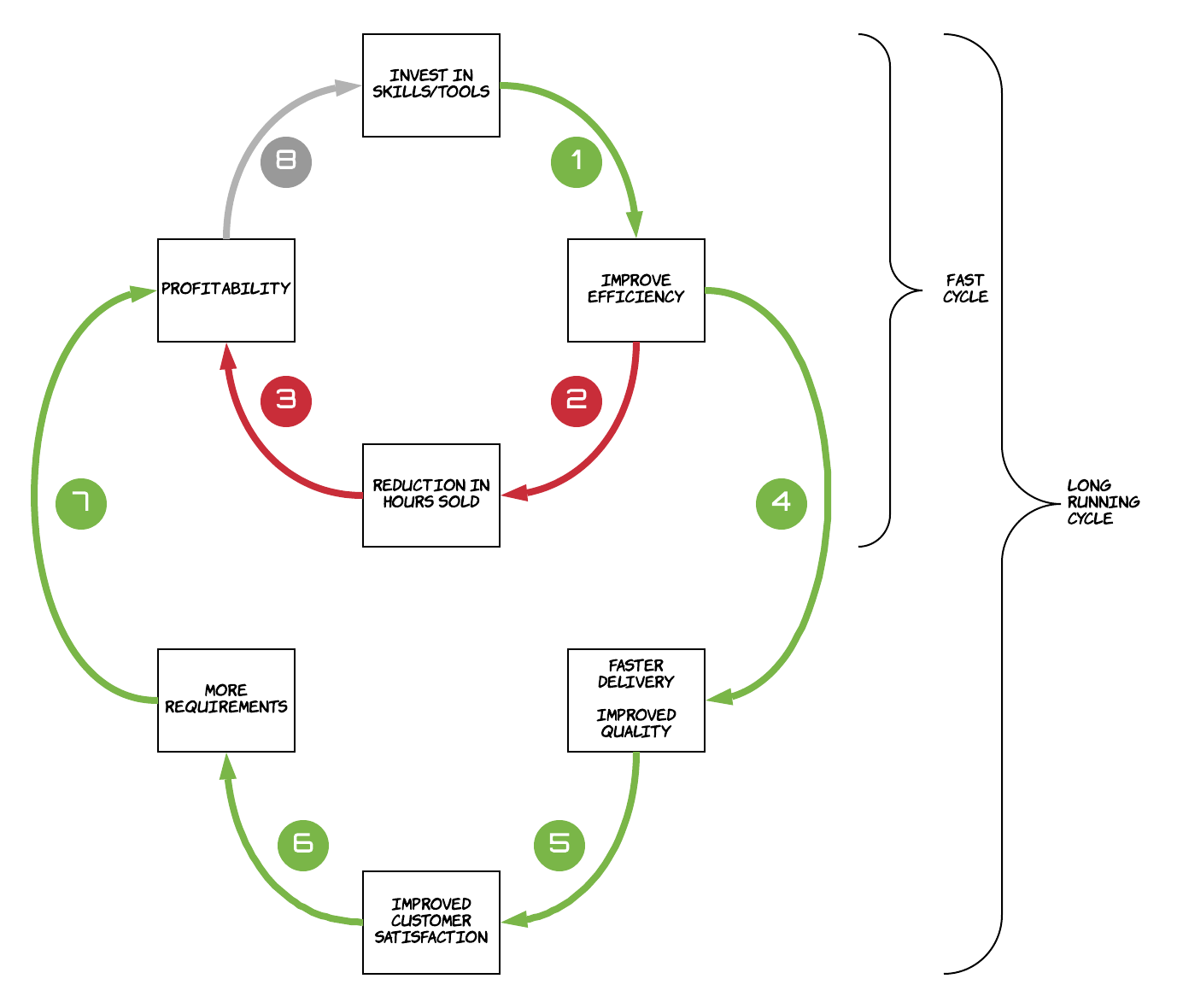The Efficiency Paradox
A common setup in many organizations is to outsource development and/or operation to a system integrator. For agile organizations that can post a challenge. A key is skillfulness - how fast and good can it be implemented?
Does your System Integrator invest in efficiency?
Competition is supposed to keep cost at bay, however customer relation and familiarity with the environment (In Dreamland everything is documented) pose a substantial barrier to entry. A barrier to entry will enable an incumbent vendor to charge more.
So an engagement manager might see him/herself confronted with an interesting dynamic.

There are a slow and a fast loop running concurrently. Depending on the planning horizon, the engagement manager might not see the outer loop to the detriment of all participants. Let me walk you through:
- Investment in better tools or skills leads to improved efficiency. Work is delivered faster, closer to actual requirements and with less defects
- In the short run this leads to a reduction in hours sold (bad for time and material contracts)
- A reduction in hours sold leads to reduced profitability since you have more resources sitting on the bench
In conclusion: As long as the barrier to entry protects you, investing in efficiency is bad for the bottom line. So investment in efficiency should only be made to keep the barrier to entry high enough (Add you own sarcasm tag here). However there's a longer running loop in motion: -
Improved efficiency leads to better quality and shorter delivery time. Work is done fast and good (which might justify higher charges per hour)
- Getting good quality soon leads to an increase in customer satisfaction. Who doesn't like swift and sure delivery
- Happy customers, especially when delivery times are short, will find an endless stream (only throttled by budget) of additional requirement to implement
- Having more and more new requirements coming in, keeps people off the bench and keeps utilization high. High utilization is the base of service profitability
- Investment in efficiency is justified
This is a nice example of a Systems Thinking Feedback Loop. Conclusions vary on observed time frames.
Posted by Stephan H Wissel on 18 February 2019 | Comments (0) | categories: Salesforce Singapore